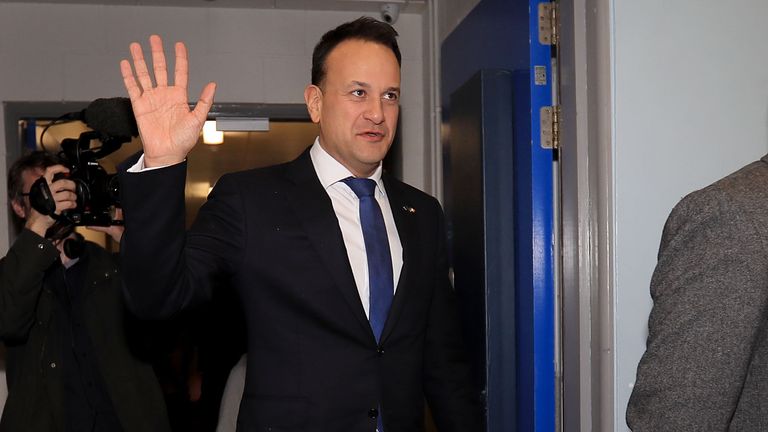The much-anticipated constituency review has redrawn the political map of West Dublin.
Nationwide, 14 new Dáil seats will be added, with major political implications for Dublin.
The Electoral Commission recommended that the 5-seater Dublin Fingal be split into two 3-seater constituencies, Dublin Fingal West and Dublin Fingal East.
Another headline figure sees Dublin West being upgraded from a 4-seat constituency to a 5-seater constituency for the next general election.
The seat, home to An Taoiseach Leo Varadkar, Ministers Jack Chambers and Roderic O’Gorman and Sinn Féin poll-topper Paul Donnelly, will now have an extra seat to fill after the constituency saw a 10.8% population increase since 2016.
Two electoral divisions from Dublin North-West, Blanchardstown-Abbotstown and The Ward, are being added to the make-up of Dublin West.
Submissions to the Electoral Commission called for the Ashtown and Navan Road areas to be transferred to Dublin Central, but were rejected.
“As part of its consideration of the issue, the Commission reflected on the history of the Ashtown EDs and recommends no change to maintain continuity in the constituency,” it noted.
The Dublin West constituency is mostly made up of EDs in the Fingal County Council area – with some EDs from the Dublin City Council area.
A 10.8% rise in population since the last review in 2016 was a major factor in an extra seat being added, with the commission “taking the large increase of population that the constituency experienced since 2016” into account.
Sinn Féin have made their governmental ambitions well-known, and if they want to be calling the shots in the Dáil after the next election, winning a second seat in Dublin West should be on top of their to-do list.
Likewise, if the current coalition wishes their renew their mandate from 2020, the pressure will be on Taoiseach Leo Varadkar to elect a running mate next time out.
Dublin North-West will see three electoral divisions from Dublin Bay North, with a hefty voter base of nearly 13,000, added to the fold, but will lose areas of Blanchardstown and the Airport area to Dublin West and Dublin Fingal West respectively.
Dublin Central will remain unchanged at four seats, despite seeing a population growth of 11.9% since the last review of constituency boundaries.
Indeed, the pressure will be on Mary Lou McDonald to land a knockout blow and elect a running mate alongside her, but with her constituency staying on four candidates, that it easier said then done.
88 is now the magic number needed to form a Government, meaning that Sinn Féin’s initial targets of a high-50s seat count at the next election will now have to be rejigged if they are to form a Government.
Reaction to the recommendations has been mixed, with Aontú leader Peadar Tóibín saying that the Constitution should be amended to cap the number of TDs in the Dáil.
“We have enough TDs. We don’t need anymore. I believe it is now time to hold a referendum to amend this constitutional requirement to increase the number TDs each time the census reveals significant population growth,” Tóibín said.
The Meath West TD questioned the increase in the number of 3-seater constituencies across Ireland, saying they “militate against smaller parties.”
Dublin North-West TD Róisín Shortall said “while I accept the recommendations of the Electoral Commission, it is deeply regrettable that Santry will be split between two Dáil constituencies.”
“This is one community which I believe would be better served and represented as such.”
“The loss of Meakstown is also unwelcome, particularly as it is being moved into the new and unwieldy Dublin Fingal West constituency.”
The Social Democrats TD also said that the loss of small parts of Finglas West to Dublin West is “unfortunate.”
Despite the losses of territory from her patch, Shortall said she “very much welcomes the extension of the Dublin North West constituency further into Beaumont and the addition of parts of Kilmore, Aulden Grange and Woodlawn.”
Labour Councillor John Walsh said “it was about time” that Dublin West became a 5-seater, saying “it’s one of the fastest growing constituencies in the country.”
However, Walsh felt that this particular set of recommendations from the Electoral Commission was a missed opportunity, pointing to the lack of 6-seaters across the country.
“I think it’s undemocratic in all honesty,” Councillor Walsh told Northside People, saying that owing to Ireland’s population increase since 2016, the implementation of 6-seaters would make sense.
“I suspect the Government had an influence on this particular set of recommendations,” he asserted, and said this set of recommendations benefits the main three political parties.
“There was a real opportunity here to create a truly representative electoral system, and they didn’t take the chance” Walsh lamented.
While Dublin West remains a Labour target seat for the next election, Walsh acknowledged that 3-seater constituencies were not favourable to the likes of smaller parties like Labour, Social Democrats and the Green Party.
Green Party representative and local election candidate Feljin Jose told Northside People “I think it’s a mixed bag for us and for other parties. Some of the changes are good for us, some aren’t – that’s the way these reviews always go.”
“I would like to see as few 3 seater constituencies as possible. 3 seater constituencies benefit big parties and make it harder for smaller parties. We have a proportional representation system and 3 seaters deliver poor proportional representation compared to larger constituencies.”
Of course, this is only one set of reviews. Jose points out the Electoral Commission is now a permanent fixture in Irish politics, which makes future changes like this “much easier.”
“For an election nerd like me, it’s good to know that we’ll get to have all this fun again in a few years!”
